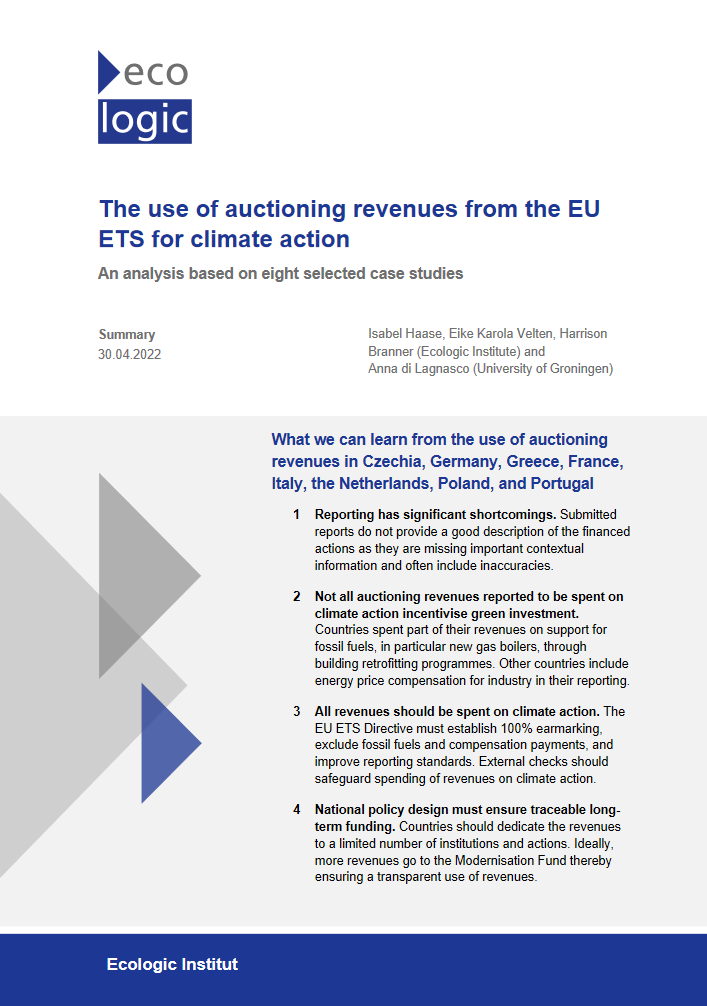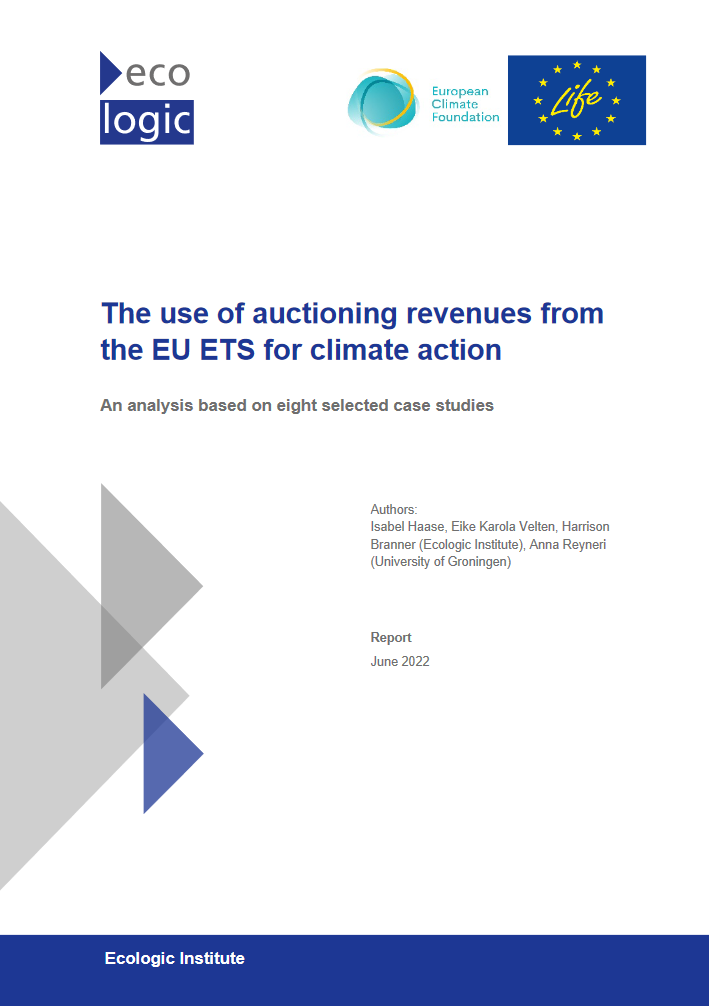The Use of Auctioning Revenues from the EU ETS for Climate Action – Summary
An analysis based on eight selected case studies
- Publication
- Citation
Haase, Isabel; Eike Karola Velten, Harrison Branner, Anna Reyneri (2022) The use of auctioning revenues from the EU ETS for climate action – An analysis based on eight case studies. Summary. Ecologic Institute, Berlin.
This study analysed if and how EU Member States used their auctioning revenues from the EU Emissions Trading System (ETS) for climate action. For this purpose, we selected eight case study countries, namely Czech, Germany, Greece, France, Italy, the Netherlands, Poland, and Portugal. As part of these case studies, we examined the reporting, the legal provisions and the political narrative around auctioning revenues through desk research and expert interviews.
Our four key conclusions are:
- All revenues should be spent on climate action. The EU ETS Directive must establish 100% earmarking, exclude fossil fuels and compensation payments, and improve reporting standards. External checks should safeguard the spending of revenues on climate action.
- Not all auctioning revenues reported as spent on climate action incentivise green investment. In most countries, part of the revenues enabled additional action which most likely would not have happened without them. However, in some countries, revenues did not lead to additional climate action or new political realities led to a deviation from the established good allocation practices. Furthermore, countries spent part of their revenues on support for fossil fuels, in particular new gas boilers through building retrofitting programmes. Other countries include energy price compensation for industries in their reporting.
- Reporting has significant shortcomings. In most reports, important contextual information was missing, such as relevant laws and institutional set-up, as well as details on the programmes, such as beneficiaries, supported technologies, type of scheme and the size of the whole programme. Thus, additional sources were needed for a good understanding of the use of auctioning revenues in these countries.
- National policy design must include earmarking and ensure traceable long-term funding. While earmarking does not necessarily guarantee that revenues are spent on climate action, it is necessary to make revenue use comprehensible and external checks possible. Ideally, more revenues should go to the Modernisation Fund in order to ensure transparent use. Furthermore, countries should dedicate the revenues to a limited number of institutions and actions to facilitate traceability.
The study was commissioned by Wise Netherlands. The case studies as well as associated policy recommendations are presented in a technical report. The main findings are shown in a summary, targeted at stakeholders and the interested public.





